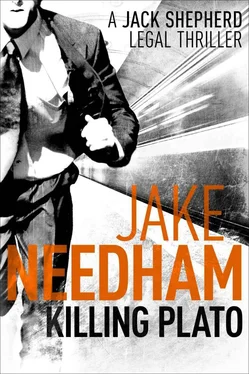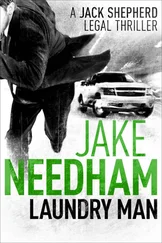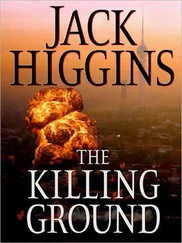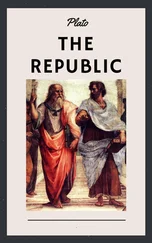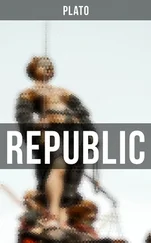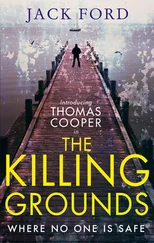Jake Needham - Killing Plato
Здесь есть возможность читать онлайн «Jake Needham - Killing Plato» весь текст электронной книги совершенно бесплатно (целиком полную версию без сокращений). В некоторых случаях можно слушать аудио, скачать через торрент в формате fb2 и присутствует краткое содержание. Жанр: Триллер, на английском языке. Описание произведения, (предисловие) а так же отзывы посетителей доступны на портале библиотеки ЛибКат.
- Название:Killing Plato
- Автор:
- Жанр:
- Год:неизвестен
- ISBN:нет данных
- Рейтинг книги:4 / 5. Голосов: 1
-
Избранное:Добавить в избранное
- Отзывы:
-
Ваша оценка:
- 80
- 1
- 2
- 3
- 4
- 5
Killing Plato: краткое содержание, описание и аннотация
Предлагаем к чтению аннотацию, описание, краткое содержание или предисловие (зависит от того, что написал сам автор книги «Killing Plato»). Если вы не нашли необходимую информацию о книге — напишите в комментариях, мы постараемся отыскать её.
Killing Plato — читать онлайн бесплатно полную книгу (весь текст) целиком
Ниже представлен текст книги, разбитый по страницам. Система сохранения места последней прочитанной страницы, позволяет с удобством читать онлайн бесплатно книгу «Killing Plato», без необходимости каждый раз заново искать на чём Вы остановились. Поставьте закладку, и сможете в любой момент перейти на страницу, на которой закончили чтение.
Интервал:
Закладка:
But they couldn’t see what they were getting into, of course, so they just kept going. Like the rest of us did when we were digging a hole for ourselves, they moved forward step by step, no single step seeming all that important, but the sum of all those steps propelling them into the heart of a wasteland so terrifying that surely they would have turned and fled if they could have seen it for what it really was.
I was still trying to decide what to make of that dazzling insight when jet lag took me and I fell into a deep if short-lived sleep.
FIFTY
Zoe’s funeral was at a Catholic church on Eighty-Third Street near Park. Predictably it drew a crowd of television and newspaper photographers, but there were actually fewer lenses poking at Zoe’s small, rose-covered coffin than I had expected. I gathered, in death, Plato Karsarkis was already on the inevitable slide to becoming nothing more than yesterday’s news. Another year and he would be in somebody’s whatever-happened-to column.
Karsarkis’ ex-wife, Zoe’s mother, was both younger and more striking than I had expected. She was tall and very thin, and her blonde hair was twisted up into what I think women call a French braid. A black Chanel suit set off her pale skin and her blue eyes looked both warm and guarded at the same time.
When the brief ceremony ended, she stood and crossed herself, and then while we all waited respectfully in silence she left the church alone by the center aisle. Strangely, just as she passed me she turned her head slightly and caught my eye. Normally I would have looked away, but she didn’t, so I didn’t either.
For a moment it seemed almost as if she was going to stop and say something to me, although I couldn’t imagine what it would be. She didn’t stop, of course, but stranger still, she tilted her head slightly in my direction as she moved past and appeared to mouth something that looked to me exactly like thank you . Then she continued out of the church onto Eighty-Third Street. By the time I had made my own way outside, she was gone.
I had no idea at all what that could have been about, or even if I might have imagined the whole thing. No idea at all.
Back at the hotel that night I ordered a burger and a beer from room service and I watched Monday Night Football until I realized I didn’t give a damn about American football anymore. After that, I went down to the bar mostly just to have something to do. Pleased to find the place nearly deserted, I took a stool and sipped a Bushmills and water in silence.
The television set at the end of the bar was tuned to New York One, a twenty-four-hour cable news channel that featured mostly local news. I didn’t pay much attention to it until I happened to glance up and see the church where Zoe’s funeral had been held that afternoon.
“Could you turn that up?” I called out to the bartender.
The ferret-faced man who looked like Al Pacino with bad hair was washing glasses in a sink at the other end of the bar. He dried his bquohands on the towel hanging over his shoulder, then picked up a remote control and raised the television’s volume.
As I listened to a woman reporter deliver a rambling and unnecessarily detailed description of Zoe’s funeral, the bartender eased over, tilted his head up, and watched along with me. The reporter wrapped her story with a brief account of Plato Karsarkis’ own death in a plane crash and then summarized some of the more outrageous stories that had swirled around him in life.
“Good riddance,” the bartender mumbled in a thick Eastern European accent of some kind. “The bastard.”
“I’m sorry?” I asked automatically, not entirely certain I’d heard the man correctly.
“I said the bastard got what he deserved,” the bartender repeated, gesturing with his towel toward the TV set. “Plato Karsarkis getting killed like that, I meant. Not the little girl dying, God bless her.”
I said nothing.
“That scumbag was a piece-of-shit criminal and everybody treated him like a movie star,” the bartender snorted in disgust. “Made a fortune helping the rag heads kill people. Got what he deserved, if you ask me.”
“There was never a trial,” I said. “Plato Karsarkis might not have been convicted of anything if one had taken place.”
The man snorted again. “I expect you got that right, pal. Make the crime big enough and nobody ever did it. Notice how that always works?”
The bartender tossed his towel up in the air, caught it smartly, and scrubbed a spot off the bar. Then he turned the television set back down and returned to washing his glasses.
I let him, finishing my whiskey in silence.
The next morning, wrapped in a hotel bathrobe and trying to read the New York Times over toast and coffee, I found I couldn’t stop thinking about what the bartender had said.
He was right about one thing, of course. The really big crimes had little or nothing to do with justice. What they had to do with was power. I didn’t like it, but I understood it. What I didn’t understand, at least not yet, was exactly what the really big crime had really been in this case.
Was it Plato Karsarkis’ deal to peddle smuggled oil and launder the profits? Was it corrupt Asian politicians taking payoffs when their countries bought the oil? Was it some cockamamie National Security Council scheme to subvert Indonesia? Was it the secret diversion of American weapons to terrorists who then used them to kill hundreds of kids? Was it somebody, maybe even the Americans in the White House who had set the whole scheme into motion in the first place, murdering people in an effort to retrieve tape recordings implicating them in the plot?
Or was it something worse? Something even worse than that.
Was it that a few powerful men knew exactly what they had done; that their scheming and plotting had set in motion events that they could no longer control; that innocents had been killed as a consequence; and that they were all going to get away with it?
When I thought about it that way, a hard knot of anger began to form deep within me. If they did get away with it, wouldn’t I be responsible now? Didn’t I possess both the means and the ability to see they didn’t get away with it?
I knew I had to forget all about abstract concepts like good and evil, fairness and injustice, honor and shame. What I had to fo?away wicus on now was power. Who had it, how they used it, and where it was.
I knew where it was.
The White House was just at the other end of the Delta Shuttle, hardly more than an hour from New York.
In the bottom of my bag there was a flat manila envelope and inside that envelope was the printout of the NIA files Kate had given me together with the three microcassettes Plato Karsarkis had committed into my care. When I had packed in Bangkok, I had put them into my suitcase without really understanding why I was doing it.
But now I understood completely.
What Karsarkis had wanted me to do all along was to carry a message to the White House, to my old roommate Billy Redwine in particular. The message was to have been that Plato Karsarkis wanted off the hook for everything he had done or he would make them pay. He would tell the world what they had done, what the White House had done, and he would bring them down with him. He would bring them all down.
Plato Karsarkis might be dead, but the soul of his message still lived on the three little cassettes I had in my possession. The time had come for people to start doing the right thing, not because Karsarkis would expose them if they didn’t, but just because it was right.
I tossed the New York Times onto the couch and got dressed. Then I packed and took a cab to LaGuardia, where I caught the Delta Shuttle to Washington.
Читать дальшеИнтервал:
Закладка:
Похожие книги на «Killing Plato»
Представляем Вашему вниманию похожие книги на «Killing Plato» списком для выбора. Мы отобрали схожую по названию и смыслу литературу в надежде предоставить читателям больше вариантов отыскать новые, интересные, ещё непрочитанные произведения.
Обсуждение, отзывы о книге «Killing Plato» и просто собственные мнения читателей. Оставьте ваши комментарии, напишите, что Вы думаете о произведении, его смысле или главных героях. Укажите что конкретно понравилось, а что нет, и почему Вы так считаете.
